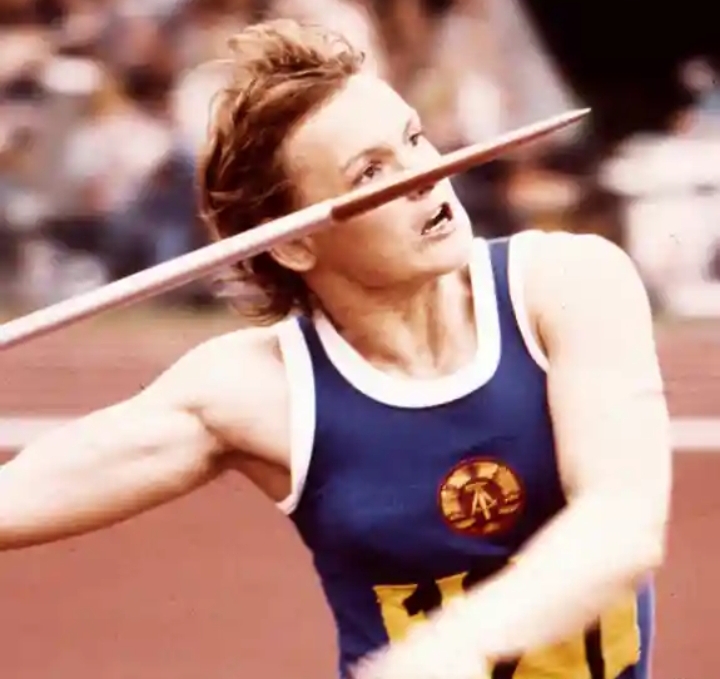Two-time Olympic gold medalist Ruth Fuchs died in a Jena hospital Wednesday, according to her family. The East German athlete later confessed to doping and served in the East German and reunified German parliaments.
Ruth Fuchs, Olympic Champion in Javelin Dies at 76


Ruth Fuchs, a two-time East German (GDR) Olympic gold medalist and prominent federal and state politician in Germany, has died at the age of 76, according to her family.
The former athlete died early on Wednesday morning at the University Hospital in Jena, Germany. The cause of death was not disclosed.
The news was confirmed by political allies from the Left Party in her home state of Thuringia in eastern Germany.
Fuchs was the first woman to throw a javelin over 60 metres. At the end of her career in competitive sport (from 1967 to 1980) she failed to reach the 70-metre-mark by four centimetres in her personal best throw of 69.96 metres.
Representing East Germany, she won Olympic gold in 1972 and 1976. She was known as “the woman with the iron arm.”
After retirement from sports, Fuchs became a member of parliament for the Party of Democratic Socialism (now the Left Party) in the re-united Germany.
In 1994, Fuchs admitted using steroids during her career. Her second husband and coach Karl Hellmann was considered a doping specialist in East Germany.
“Ruth didn’t mince her words. She was reliable, honest, her heart was in the right place. My heartfelt condolences to her relatives,” Left Party chairman Dietmar Bartsch wrote on social media platform X, formely known as Twitter.
After ending her sports career, Fuchs became a member of East Germany's last parliament in 1990 before becoming a parliamentarian in reunified Germany's Bundestag as a member of the Party of Democratic Socialism (PDS), which later became the Left Party.
Fuchs was the first Olympic medalist to serve in the Bundestag, where she was active until 2002. She then became a member of the state parliament of Thuringia, representing the Left party from 2004 to 2009.
In politics, she was known as a "fighter for equality" by her colleagues.
After reunification, Fuchs said of the former East German system: "Those who don't regret the demise of the GDR don't have a heart those who want the GDR back don't have a brain."

 বাংলা
বাংলা  Spanish
Spanish  Arabic
Arabic  French
French  Chinese
Chinese 
